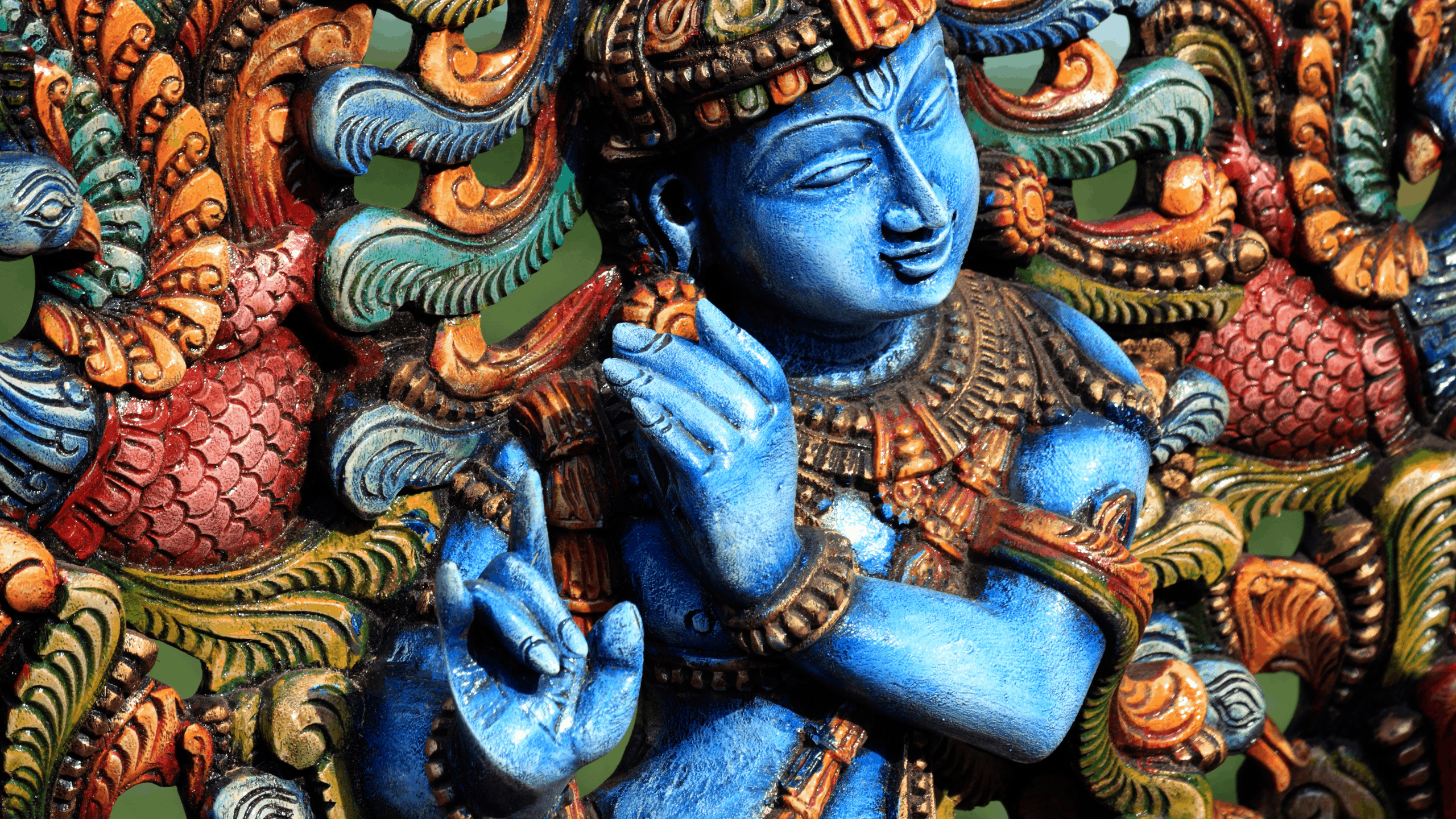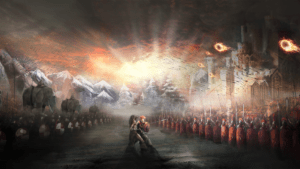Worldview Composition
A comprehensive and well-thought-out worldview must address twelve topics about reality, including:1
1) Theology / Concept of God / Ultimate Reality: What kind of God, if any, actually exists?
2) Metaphysics / External Reality: Is there anything beyond the physical cosmos?
3) Epistemology / Knowledge: What can be known, and how can anyone know it?
4) Ontology / Origins: Where did everything come from?
5) Anthropology / Psychology / Humanity: Who am I? What makes me human?
6) Location: Where am I?
7) Axiology (Morals): How should I live?
8) Axiology (Values): What should I consider of great worth?
9) Predicament: What is humanity’s fundamental problem?
10) Resolution: How can the problem be solved?
11) History (Past & Present): What is the meaning and direction of history?
12) Future / Destiny: Will I survive the death of my body, and if so, in what state?
Outlining the Worldview of Hinduism
Brevity, and the complexity of Hinduism, precludes a comprehensive articulation of the worldview. Hinduism provides the foundation for numerous religions and philosophical systems, each with divergent nuances, thereby rendering it impossible to detail a belief profile that applies universally. The following serves as a general framework—describing the basic principles of Hinduism, without exhaustively developing the particular doctrines. This outline will offer a foundation for future analysis, and worldview comparison.
Theology / Concept of God / Ultimate Reality
Superficially, Hinduism appears polytheistic, as it affirms a multiplicity of divine forms (e.g., Śiva, Viṣṇu, Gaṇeśa, and various deities located within regional temples and shrines), recognizing approximately 330 million gods and goddesses total.2 Unfortunately, the theological framework of Hinduism is not one-dimensional. Since no essential doctrines or authority exists, theological traditions differ between various darśanas (Hindu philosophies) and sampradāyas (systems or schools of thought).3 The Rāmānuja sampradāya adheres to qualified monism, in contrast to the dualism of Madhvāchārya and monism of Ādi Shankara. Additionally, Bhakti Hinduism represents a functional form of monotheism or monolatrism.4
Fundamentally, Hindu traditions are monistic and henotheistic. Hinduism generally maintains a pantheistic or panentheistic worldview, while recognizing a multitude of deities as manifestations (avatāra) of one supreme God, or “aspects of an impersonal absolute,” which provide “windows into this ultimate reality.”5 Dr. Klaus K. Klostermaier explains,
Hindu theology has many ways of explaining the unity of Brahman in the diversity of iṣṭadevatās [personal manifestations of Brahman]: different psychological needs of people must be satisfied differently, local traditions and specific revelations must be accommodated, the ineffable can only be predicated in, quite literally, thousands of forms. Among the Sahāsranamas [thousands of names ascribed to Brahman], the litanies of thousand names that are recited in honor of each of the great gods, the overlap is considerable: each one would be named creator, preserver, destroyer of the universe; each one would be called Truth, Grace, and Deliverance. Each one, in the end, is the same: One.6
Consequently, Hindus embrace a form of religious pluralism, asserting that all religions convey fundamental truths concerning Ultimate Reality (or Brahman), while encouraging individuals to worship any god of their arbitrary selection (iṣṭa-devatā).7 Nevertheless, the pantheism/panentheism doctrines of Hinduism necessitate that Ultimate Reality is an impersonal force, indistinct from the manifest universe, which is beyond all rational categories.
Metaphysics / External Reality / Ontology
Hinduism declares the visible universe originates from Brahman (i.e., Ultimate Reality); however, significant variation exists between pantheistic traditions (e.g., Shankara) and panentheistic philosophies (e.g., Rāmānuja). Under a pantheistic model, the universe is māyā (mere illusion), while panentheistic models claim the universe is an emanation of Brahman, existing objectively and necessarily.8 In the latter, the universe is, by definition, eternal and self-existent. A final panentheistic/monistic alternative suggests Brahman consistently creates a universe ex Deo (out of God’s essence or being).
Epistemology / Knowledge
Hinduism affirms the existence of objective truth, yet Hindu philosophies disagree concerning the pramāṇas (means of acquiring knowledge), unable to reach consensus about which means are acceptable for obtaining accurate knowledge. The pramāṇas include:9
1) Pratyakṣa – knowledge through perception (i.e., direct, immediate cognition).
2) Anumāṇa – knowledge through inference (i.e., inferential knowledge or logical deduction).
3) Upamāṇa – knowledge from comparison or analogy.
4) Arthāpatti – postulation, supposition or presumption of a fact.
5) Anupalabdi or Abhava – knowledge from non-apprehension (i.e., non-perception of an object establishes its non-existence).
6) Śabda – knowledge resulting from verbal or written testimony.
Since the perceivable universe is māyā, Ultimate Reality exists as the only form of truth, and unfortunately, Brahman is beyond rational categories, ensuring that authentic knowledge is unattainable. In other words, Hinduism affirms the existence of objective truth, but humans are incapable of knowing it. Author Jayaram V exemplifies this principle, writing,
Our world, our lives, and our very existence do not qualify as truth. There is nothing here or on other planets or [in] the entire universe, which fits perfectly into the concept of truth as envisaged in Hindu scriptures. No religion that exists in the world or that ever existed in the past represents truth adequately and satisfactorily… Our minds cannot grasp absolute truths because they are not condition or created to grasp them… To understand truth, we have to overcome our own senses and minds. We have to transcend our limited awareness and remove all the obstructions, obstacles and blockages that stand between us and the truth… Only a few people therefore will come anywhere near the infinite Truth and even they do not know.10
Anthropology / Psychology / Humanity
According to Hinduism, the essence of the human ego or self (ātman) is identical to Brahman. Because human beings are part of the universe—a collective manifestation of Brahman—man’s essence is necessarily divine. One can formulate this metaphysical and ontological principle as follows:11
Premise 1: All reality is an undifferentiated spiritual one (monism).
Premise 2: All is God and God is all (pantheism).
Conclusion: Therefore, man in his true spiritual self is God (a divine soul).
Counterintuitively, the principle of divine ontology does not establish equality of persons, as Hinduism advocates a caste system, based upon the principles of karma and reincarnation. At the same time, our physical bodies, experiences, and sufferings are nonexistent, effectively reducing all aspects of life to insignificance.
Axiology / Ethics / Morality
Hinduism’s inherent pluralism ultimately results in nihilism, eroding any foundation for objective morality. Within pantheistic models, morals and values are aspects of an illusory universe, rendering every aspect of life meaningless. Similarly, under panentheistic models, the material universe exists as a collective manifestation of a divine, impersonal force (Ultimate Reality), precluding individualism and moral agency.
Nevertheless, Hindu leaders recognize the universe operates according to objective cause and effect relationships, and profess belief in a moral law called Karma.12 Yogi Swami Sivananda explains,
Every wrong action or crime brings its own punishment, in accordance with the law of retribution. The law of causation, the law of action and reaction, the law of compensation and the law of retribution-all these operate together. He who robs another man robs himself. He who hurts another man hurts himself first. He who cheats another cheats himself first. Every wrong action causes punishment first in the inner nature or soul and externally in circumstances in the form of pain, misery, loss, failure, misfortune, disease, etc… Remember that God is neither partial nor unjust. You suffer on account of your own wicked actions. Sow the seeds which will bring pleasant fruits and which will make you happy herein and hereafter.13
While Hindus profess belief in this universal law, there remains no basis of objective morality, and thus, karmic standards vary between people and groups.
Predicament
Ignorance plagues humanity, as individuals have forgotten their divine nature. Instead, “we have mistakenly attached ourselves to the desires of our separate selves, or egos, and thereby to the consequences of their resultant actions as determined by the law of karma.”14
Destiny
Saṃsāra (doctrine of reincarnation) postulates a cyclicality of life, matter, and existence. Upon death, the human soul (ātman) inhabits another human body, animal, insect, or plant (based upon their karma).15 Kauai’s Hindu Monastery explains,
The Hindu knows that the belief in a single life on earth, followed by eternal joy or pain is utterly wrong and causes great anxiety, confusion and fear. Hindus know that all souls reincarnate, take one body and then another, evolving through experience over long periods of time. Like the caterpillar’s metamorphosis into the butterfly, death doesn’t end our existence but frees us to pursue an even greater development.16
Resolution
Saṃsāra continues until one achieves enlightenment (i.e., freedom from ignorance), realizing that his existence is an illusion, and “only the undifferentiated oneness of Brahman is real.”17 Once an individual is successful in detaching himself from the desires and actions of his ego—achieving self-realization and self-knowledge—he obtains freedom from the reincarnation cycle (mokṣa or nirvāṇa).18 The mārga (path to enlightenment) involves aspects of jñāna (knowledge), bhakti (devotion), Rāja (meditation), and karma (action).19
History (Past, Present, and Future)
In one respect, kālá (time) is cyclical. Although the universe—as a manifestation of Brahman—is eternal, cycles of creation and dissolution persist throughout eternity.20 Additionally, human persons endure a continual cycle of life, death, and reincarnation, unless and until they achieve mokṣa. In another respect, time—as an aspect of the manifest universe—is merely an illusion.21 Consequently, the past, present, and future are meaningless.
- Kenneth Richard Samples, A World of Difference: Putting Christian Truth-Claims to the Worldview Test (Michigan: Baker Books, 2007), 21-28.
- Gavin D. Flood, An Introduction to Hinduism (New York, NY: Cambridge University Press, 1996), 14; D. Balasubramanian, and N. Appaji Rao, eds., The Indian Human Heritage (Hyderabad, India: Universities Press (India) Limited, 1998), 96; Dean Halverson, ed., The Compact Guide to World Religions (Minneapolis, MN: Bethany House, 1996), 87-89.
- For a definition of Hindu terms, see W. J. Johnson, A Dictionary of Hinduism (New York, NY: Oxford University Press, 2009).
- Kenneth Richard Samples, God Among Sages: Why Jesus is not Just Another Religious Leader (Grand Rapids, MI: BakerBooks, 2017), 96.
- An Introduction to Hinduism, 14.
- Klaus K. Klostermaier, A Survey of Hinduism: First Edition (Albany, NY: State University of New York Press, 1989), 144.
- Joseph Runzo, “Pluralism and Relativism,” in Chad V. Meister, ed., The Oxford Handbook of Religious Diversity (New York, NY: Oxford University Press, 2011), 63.
- Klaus K. Klostermaier, A Survey of Hinduism: Third Edition (Albany, NY: State University of New York Press, 2007), 99.
- Swami Atmananda, “Six Pramanas,” International Vedanta Mission, accessed April 01, 2017, http://www.vmission.org.in/vedanta/articles/pramanas.htm.
- Jayaram V, “What is Truth?” HinduWebsite LLC, accessed April 01, 2017, http://www.hinduwebsite.com/hinduism/essays/whatistruth.asp.
- Kenneth R. Samples, “Human Beings: God or Creatures Made in God’s Image?” Reasons to Believe, February 01, 2012, http://www.reasons.org/articles/human-beings-god-or-creatures-made-in-gods-image.
- Swami Sivananda, “Understanding Karma,” The Divine Life Society, accessed April 01, 2017, http://www.sivanandaonline.org/public_html/?cmd=displaysection§ion_id=983. Hindus also believe in multiple types of karma, including Sanchita Karmas, Prarabdha Karmas, and Kriyamana or Agami Karmas; see Swami Sivananda, “Three Kinds of Karma,” The Divine Life Society, accessed April 01, 2017, http://www.sivanandaonline.org/public_html/?cmd=displaysection§ion_id=1179.
- Swami Sivananda, “Law of Retribution,” The Divine Life Society, accessed April 01, 2017, http://www.sivanandaonline.org/public_html/?cmd=displaysection§ion_id=1160.
- Dean C. Halverson, and Natun Bhattacharya, “What Is Hinduism?” Christian Research Institute, April 22, 2009, http://www.equip.org/article/what-is-hinduism/.
- Edward Dwight Walker, Reincarnation: A Study of Forgotten Truth (New York, NY: John W. Lovell Company, 1888), 246.
- “Karma and Reincarnation,” Kauai’s Hindu Monastery, accessed April 01, 2017, https://www.himalayanacademy.com/readlearn/basics/karma-reincarnation.
- “What Is Hinduism?” Christian Research Institute.
- An Introduction to Hinduism, 6.
- Chad Meister, Introducing Philosophy of Religion (New York, NY: Routledge, 2009), 46-50.
- Klaus K. Klostermaier, “Time, Divisions of,” A Concise Encyclopedia of Hinduism (London, England: Oneworld Publications, 1998).
- Harold Coward, “Time in Hinduism,” Journal of Hindu-Christian Studies 12, (1999): 22-27.




